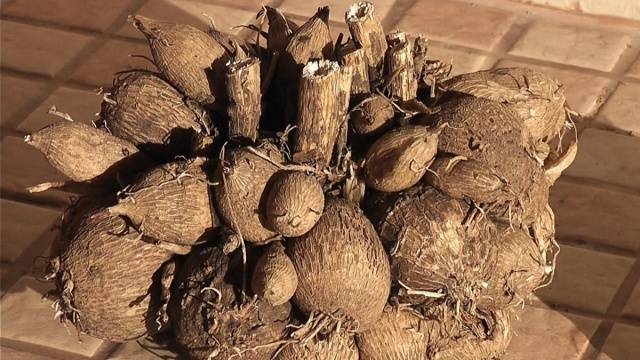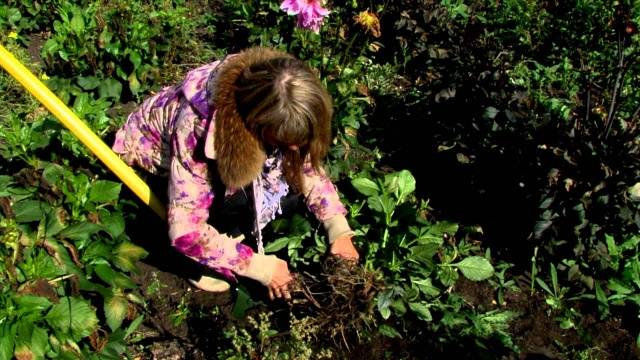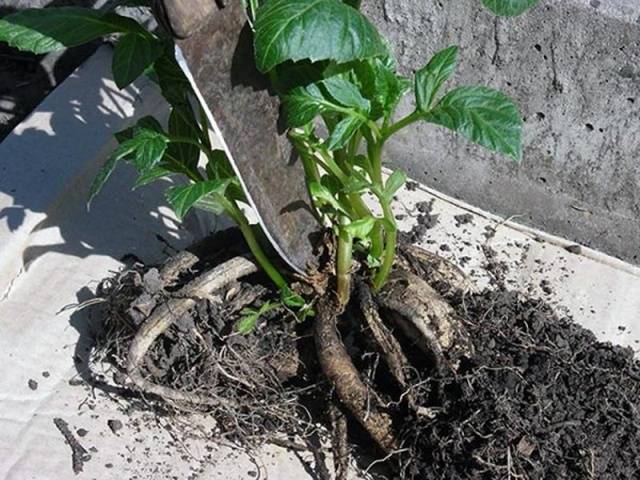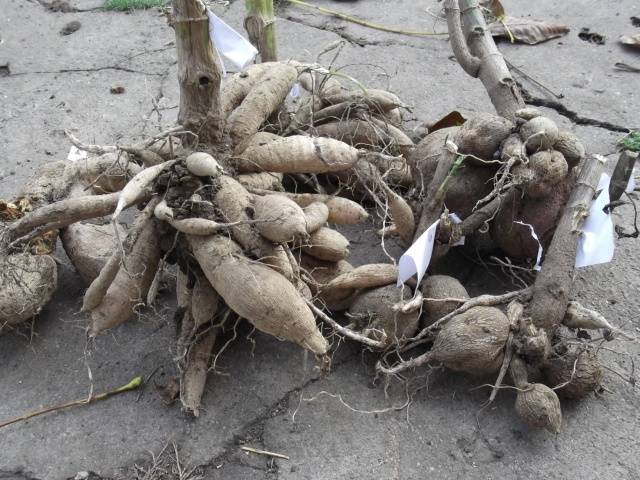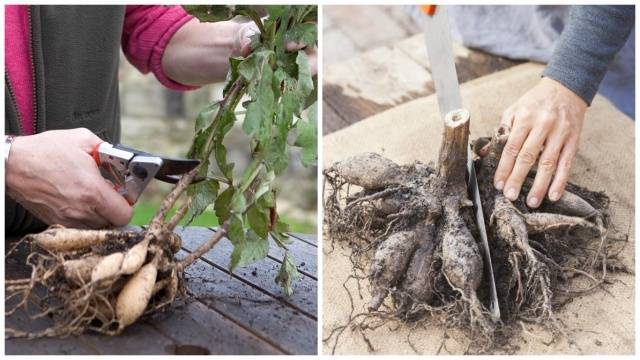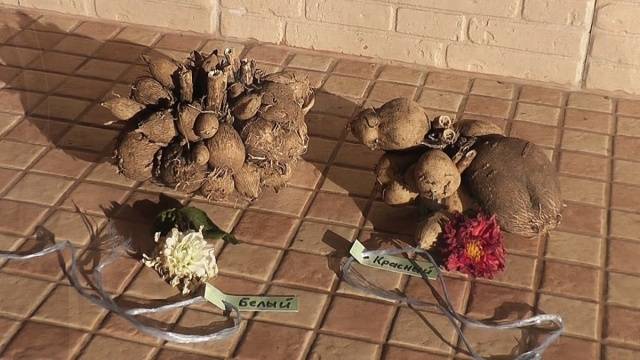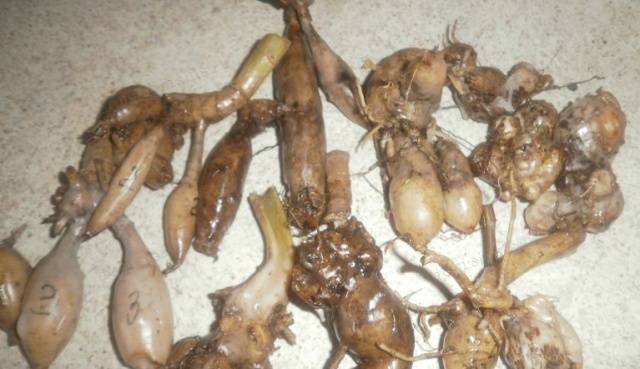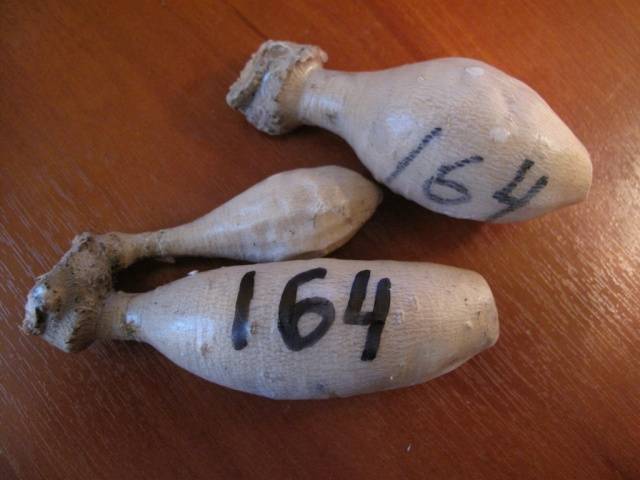Content
In autumn, all dahlia lovers are actively involved in preparing the rhizomes of these flowers for wintering. Digging up the roots should be done immediately after the first frost. The weather should be dry and preferably sunny. This article will talk about how preparation should be done dahlias for winter.
Because how correctly all the preparatory processes will be performed, not only the quality of the planting material depends, but also its safety until spring. This means that the preparation of dahlias in the fall should take an important place in the life of a gardener.
Preparing dahlias for digging
Before digging out the rhizomes, a careful culling of plants should be carried out, since the quality of the planting material and the safety of the flower will depend on this. After that, the soil around the dahlia is removed.
In this case, infections will be destroyed from the site and healthy planting material will not suffer.
In addition, it is important to consider that the root part of the dahlia accumulates moisture in itself in order to protect itself from drought. Therefore, in order to prevent decay of the root collar, watering should be stopped a week before digging out the tubers.
If frosts began earlier than expected, then the root system has not yet had time to prepare for winter. How to be? Leave the tubers in the ground for as long as possible. Cut only cold-damaged stems, no less than 15 cm from the ground. So, the plant will be able to stay in the ground for about 20 more days, and the root system will have time to ripen for wintering.
How to dig up tubers
Dahlia care in the autumn period includes the obligatory digging of tubers. As mentioned above, the roots need to be dug up and the soil removed. After the tuber must be carefully removed from the soil. All actions must be performed carefully so as not to damage the root system. After that, the tubers are cleared of soil and laid out for drying.
Purification from soil
The dug tubers should be carefully examined. Old roots are removed, since they will not give new buds in the next season. In addition, old roots are poorly stored and may not overwinter, which means that there is no point in storing them.
Thin roots are completely cut off, and long ones are simply shortened. In the process of such cleaning, you will form compact tubers, which will be easier not only to transfer from place to place, but also to save.
Some growers believe that washing the roots before storage is mandatory, while others are convinced that this should not be done. It is believed that it is easier to detect damage when flushing. Other growers claim that the cambium is damaged during the washing process, as a result of which the shelf life of the dahlia roots is reduced. Which of these options to choose is up to you.
Dividing dahlia tubers
The division of tubers into divisions is performed in the fall, before the onset of the winter period. In the spring, these manipulations can lead to damage to the roots, since they become coarser during the winter. Although the autumn division also has its drawbacks. For example, it is difficult to see the buds from which new stems will grow in the coming season.
To sprout the buds in the spring, leave a fragment of the neck on each section.After that, they need to be laid out in boxes for storage, dividing into small groups.
Large tubers are pruned and carefully inspected. If you have noticed brown, rusty and dark soft spots, then this is a clear sign of decay. Trim the lesions to a healthy, light colored tissue. Sections must be processed with crushed charcoal or lime.
How to mark tubers
Tuber marking is needed if you grow several varieties of dahlias in a flower bed. If you mark the planting material, then you will not re-sort the flowers. Mark strong tubers in a special way, for example, with an asterisk or a tick. So, you can use them for cuttings in the spring.
If you just numbered the tubers, then the markings need to be written down in a notebook. In this case, in the spring you will be able to understand where what kind of flower is and correctly plant them in the beds.
Drying tubers
If you do decide to rinse the tubers, then it would be appropriate to disinfect them. For example, in a solution of potassium permanganate. Well, after these procedures, the rhizomes should be thoroughly dried. To do this, they need to be transferred to a well-ventilated cool room. You can also dry tubers outdoors, but only in dry and sunny weather.
It is impossible to dry the planting material in the warmth, as too much moisture will evaporate from it. As a result, the tubers will dry out and will not be able to germinate in the spring. In the process of drying, the tubers must be laid with the stems down. So, excess water will evaporate from them. After about a week, cut off the small roots and shorten the stems to 3 cm.
Alternative methods of preparing planting material for winter
Some growers keep dahlia tubers with a clod of earth or treat them with paraffin. In such circumstances, the preparatory work must be carried out in a different way. After the first frost, the rhizomes should be removed from the ground along with a lump of soil. They are dried in an unheated room, which should be well ventilated.
Such planting material should be dried at a temperature not higher than + 16 ℃ for 7 days. Then you can cut the stems and transfer the rhizomes to permanent storage, for example, in boxes or crates.
Paraffin treatment
To reliably protect the tubers from spoilage, you can treat them with paraffin. To do this, you need to prepare them. So, the rhizomes are cleaned of soil and divided into small parts. Leave the stems large enough and cut off the small roots.
Disinfect the cuttings in a solution of potassium permanganate. In this solution, the tubers should stand for about 20 minutes. Let them dry for two days. After that, prepare paraffin candles (their number depends on how many tubers you have). Melt the candles in a water bath.
The paraffin should melt to a semi-liquid state. Dip the tubers into the melted paraffin wax. Under the influence of oxygen, the paraffin will instantly solidify on the treated rhizomes. They can then be wrapped in foil or paper and placed in crates / cardboard boxes. However, before planting, you will need to remove the protective shell from the tubers.
Conclusion
If you follow all the stages of preparing dahlia rhizomes for wintering, you can save the varieties and increase their number next season. We also bring to your attention a video material similar to the topic:
